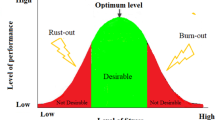Abstract
The determination of the strategic cognitive factors that intervene in the Second Order Change (SOC) are fundamental to achieve the transformation of organizational systems [6]. This work proposes a methodology based on the Fuzzy Cognitive Maps (FCM) model and the Forgotten Effects (FE) model, for the formalization and identification of these factors that intervene in the inference matrix. The inclusion of FE allows reducing inference errors in the matrix. The objective being to give certainty to the inference matrix in its state of reliability when applying FE, with the trade-off that this model only handles positive elements in the analysis matrix. This condition requires, first, to separate the elements into two matrices, one containing positive elements and the other, negative ones. The negative-element matrix is then temporarily transformed into a state of positive elements so that both matrices can operate the fuzzification-inferential-defuzzification process in the FE model [34, 16]. Once the matrices have been defuzzified, the matrix of temporarily positive elements returns to its original (negative) state and, finally, both matrices are added to obtain an adjusted inference matrix so it can be applied to the FCM model. A case study is presented where the main objective is to find the cognitive factors that intervene in the behavior of four companies’ staff, starting the procedure with two factors highly correlated: Stress Tolerance and Impulse Control. The main results represent the metrics of the absolute Hamming distances, laying the foundations for the formalization of the cognitive factors that hinder a SOC.
Access this chapter
Tax calculation will be finalised at checkout
Purchases are for personal use only
Similar content being viewed by others
References
Bartunek et al (1987) The journal of applied behavioural. Sci J 23(4):496-503
Bar-On R, Parker JDA (eds) (2000) The handbook of emotional intelligence: Theory, development, assessment, and application at home, school, and in the workplace. Jossey-Bass
Carlsson C (1996) Knowledge formation in strategic management. HICSS-27. Proceedings. IEEE. Computer Society Press, Los Almitos
Curia L, Lavalle A (2011) Decisions strategies in dynamic systems using fuzzy cognitive maps. Application to a socio-economic example. Ed. Tecsifeausp, Jistem, Brazil, 8(3):672-674
Davenport et al (1999) Human capital, Ediciones Gestión 2000 S. A. Barcelona Spain
Echevarría R (2009) The observer and his world. Ed. Granica. Buenos Aires, Argentina
Extremera, Fernandez-Berrocal (2002) The importance of developing emotional intelligence. Review Iberoamericana de Educación
Extremera N, Fernández-Berrocal P (2004) The role of emotional intelligence in students: empirical evidence. Review Electronica de Investigación Educativa 6(2):4-8. Extracte: 23/04/2009. http://redil.uabc.mx/vol.6no2/contenido-extremera-htm/
Fit-enz J (2003) The ROI of human capital. Deusto, Barcelona, Spain
Gil A (2005) Elementos de una teoría de decisión en la incertidumbre. Ed. Milladoiro, España
Goleman D (1996) Emotional intelligence. Cairos, Madrid
Goleman D (1998) The Emotional Intelligence, 6ta edn. Zeta, Buenos Aires
Hiliera, Martínez (2000) Artificial neural networks fundamentals models and applications. RA-MA Ed. Madrid
Huff et al. (2002) The strategic change. Oxford University, impress in Mexico
Leyva et al (2012) Modelling and analysis of critical success factors of solfware projects using fuzzy cognitive maps. Magazine: Ciencias de la informacion. 43(2):41-46
Kaufmann, Gil (1988) Model for to Investigation of Forgotten Efects, 1a edn. Edition Milladoiro, Spain
Kaufmann G, Terceño (1994) Mathematics for economics and business management. 1a. ed. Edition Foro científico, Barcelona, Spain
Kosko HB (1986) Fuzzy Cognitive Maps. Int J Man Mach Stud 24:65–75
Kosko H, B (1997) Fuzzy Engineering Ed. Prentice-Hall New Jersey
Montoya R et al (2005) Magazine: school of business administration, vol 53. Bogotá, Colombia, p 84
Nelson R (1991) Why do firms differ and how does it matter? Strateg Manag J 12:61–74
Nonaka I, Takeuchi H (1995) The knowledge-creating company. Oxford University Press, Nueva York, How Japanese companies create the dynamics y innovation
Nonaka I, Takeuchi H (1997) The knowledge-creating Organization. Oxford University Press, México
Peláez CE, Bowles JB (1995) Applying fuzzy cognitive maps knowledge-representation to failure modes effects analysis. IEEE proceedings annual reability and maintainability symposium, pp 0149-144X/95
Piquera et al, (2009) Negative emotions and their impact on mental and physical health. Review Suma Psicológica 16(2):85-112
Porter M (2005) Competitive strategy. Ed. CECSA, Mexico
Probst et al (2001) Manage knowledge. Pearson Educación, Mexico
Tichy M (2003) Leaders in action. 1st. Press, CECSA Mexico
Ugarriza N (1997) The evaluation of emotional intelligence through of the Bar-On inventory (I-CE) in a sample from Metropolitan Lima. University of Lima, Lima
Ugarriza, Pajares (2001) Adaptation and standardization of the emotional intelligence inventory of Bar-On ICE: NA, in adolescent children (2nd edn). Amigo, Lima
Vargas J (2013) Emotional intelligence in education, 1st edn. Groppe Books, Mexico
Weakland H, Fisch R, Watzlawick P, Bodin A (1974) Brief therapy: focused problem resolution. Review Family Process 13(2):141–168
Winter S (1982) An evolutionary theory of economic change. Cambridge University, Press Cambridge
Zadeh J (1965) Fuzzy set. Rev Inf Control 8(3):338–353
Author information
Authors and Affiliations
Corresponding author
Editor information
Editors and Affiliations
Rights and permissions
Copyright information
© 2022 The Author(s), under exclusive license to Springer Nature Switzerland AG
About this chapter
Cite this chapter
Chávez, R., González, F., Alcaraz, V., Ramos, J.R. (2022). Strategic Diagnostics of Stress and Impulse Control for Second Order Change: Inclusion of Forgotten Effects in Diffuse Cognitive Maps. In: León-Castro, E., Blanco-Mesa, F., Alfaro-García, V., Gil-Lafuente, A.M., Merigó, J.M., Kacprzyk, J. (eds) Soft Computing and Fuzzy Methodologies in Innovation Management and Sustainability. Lecture Notes in Networks and Systems, vol 337. Springer, Cham. https://doi.org/10.1007/978-3-030-96150-3_5
Download citation
DOI: https://doi.org/10.1007/978-3-030-96150-3_5
Published:
Publisher Name: Springer, Cham
Print ISBN: 978-3-030-96149-7
Online ISBN: 978-3-030-96150-3
eBook Packages: Intelligent Technologies and RoboticsIntelligent Technologies and Robotics (R0)




